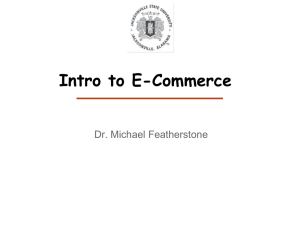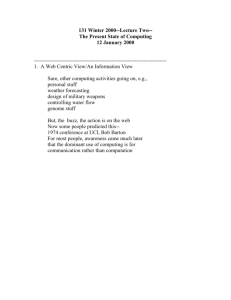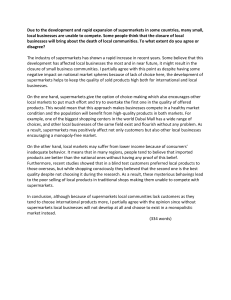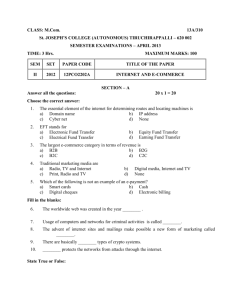here Can't see the player? Click
advertisement
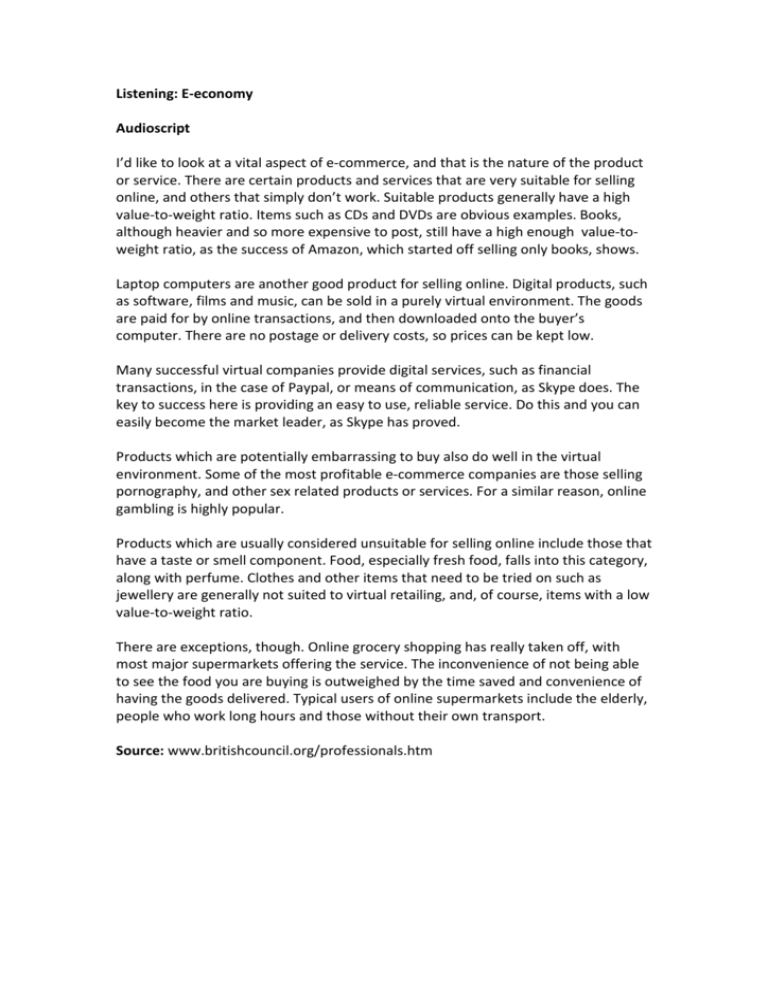
Listening: E-economy Audioscript I’d like to look at a vital aspect of e-commerce, and that is the nature of the product or service. There are certain products and services that are very suitable for selling online, and others that simply don’t work. Suitable products generally have a high value-to-weight ratio. Items such as CDs and DVDs are obvious examples. Books, although heavier and so more expensive to post, still have a high enough value-toweight ratio, as the success of Amazon, which started off selling only books, shows. Laptop computers are another good product for selling online. Digital products, such as software, films and music, can be sold in a purely virtual environment. The goods are paid for by online transactions, and then downloaded onto the buyer’s computer. There are no postage or delivery costs, so prices can be kept low. Many successful virtual companies provide digital services, such as financial transactions, in the case of Paypal, or means of communication, as Skype does. The key to success here is providing an easy to use, reliable service. Do this and you can easily become the market leader, as Skype has proved. Products which are potentially embarrassing to buy also do well in the virtual environment. Some of the most profitable e-commerce companies are those selling pornography, and other sex related products or services. For a similar reason, online gambling is highly popular. Products which are usually considered unsuitable for selling online include those that have a taste or smell component. Food, especially fresh food, falls into this category, along with perfume. Clothes and other items that need to be tried on such as jewellery are generally not suited to virtual retailing, and, of course, items with a low value-to-weight ratio. There are exceptions, though. Online grocery shopping has really taken off, with most major supermarkets offering the service. The inconvenience of not being able to see the food you are buying is outweighed by the time saved and convenience of having the goods delivered. Typical users of online supermarkets include the elderly, people who work long hours and those without their own transport. Source: www.britishcouncil.org/professionals.htm

